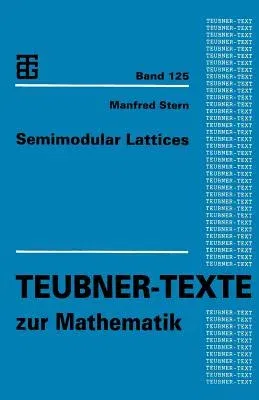Semimodular Lattices (Softcover Reprint of the Original 1st 1991)Paperback - Softcover Reprint of the Original 1st 1991, 20 November 2013

Qty
1
Turbo
Ships in 2 - 3 days
In Stock
Free Delivery
Cash on Delivery
15 Days
Free Returns
Secure Checkout
Part of Series
Teubner-Texte Zur Mathematik
Print Length
237 pages
Language
German
Publisher
Vieweg+teubner Verlag
Date Published
20 Nov 2013
ISBN-10
3663124797
ISBN-13
9783663124795
Description
Product Details
Book Edition:
Softcover Reprint of the Original 1st 1991
Book Format:
Paperback
Country of Origin:
NL
Date Published:
20 November 2013
Dimensions:
21.59 x
13.97 x
1.3 cm
ISBN-10:
3663124797
ISBN-13:
9783663124795
Language:
German
Location:
Wiesbaden
Pages:
237
Publisher:
Series:
Weight:
281.23 gm

